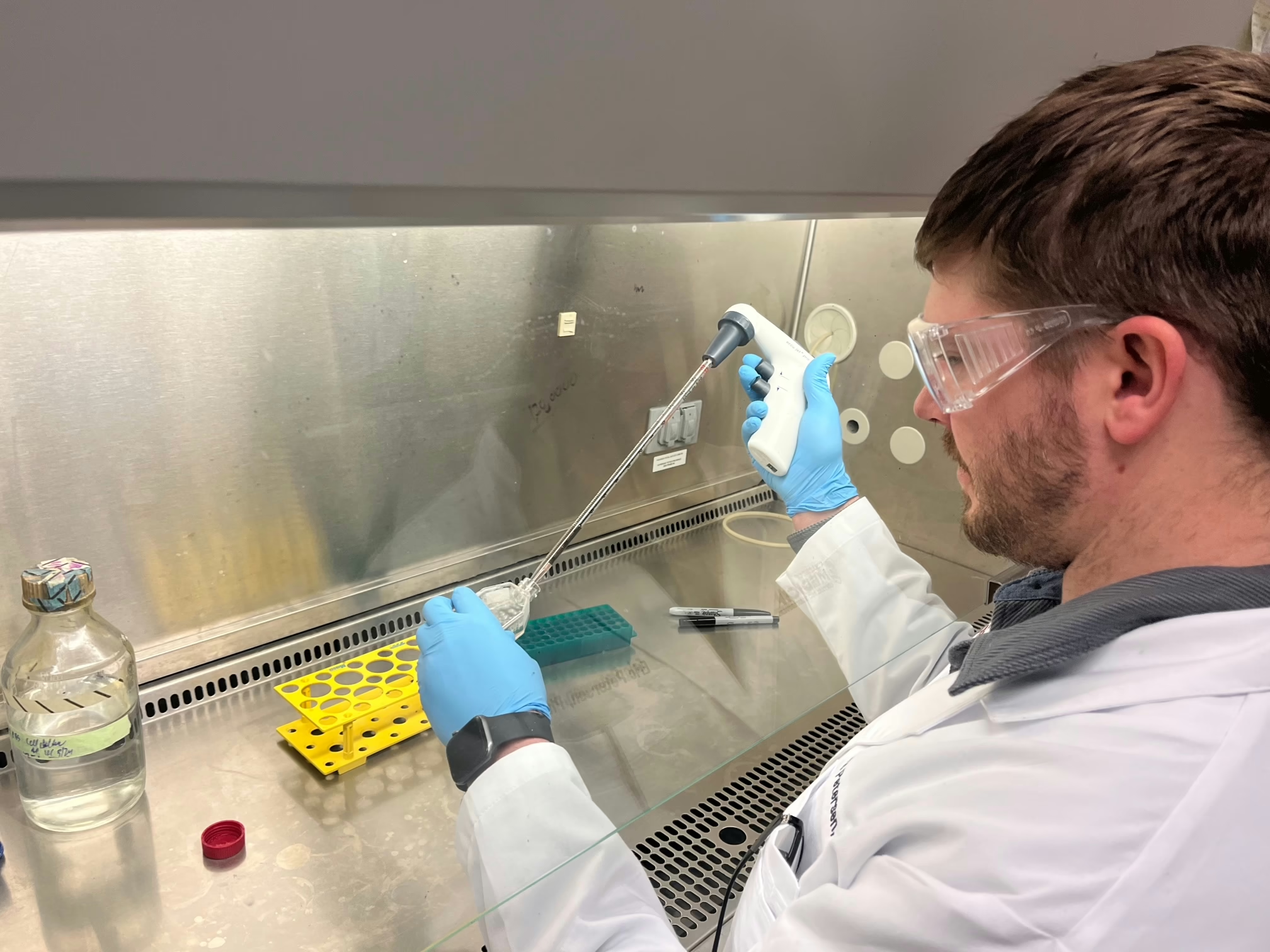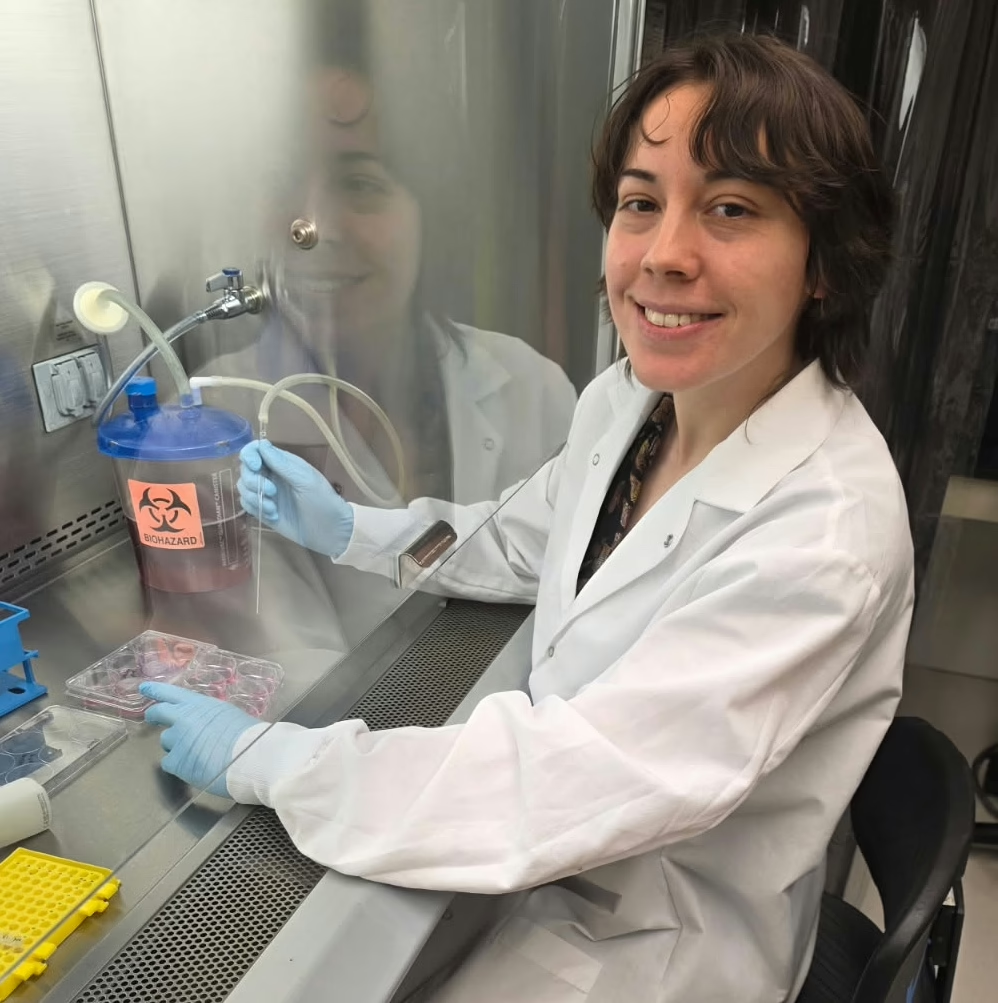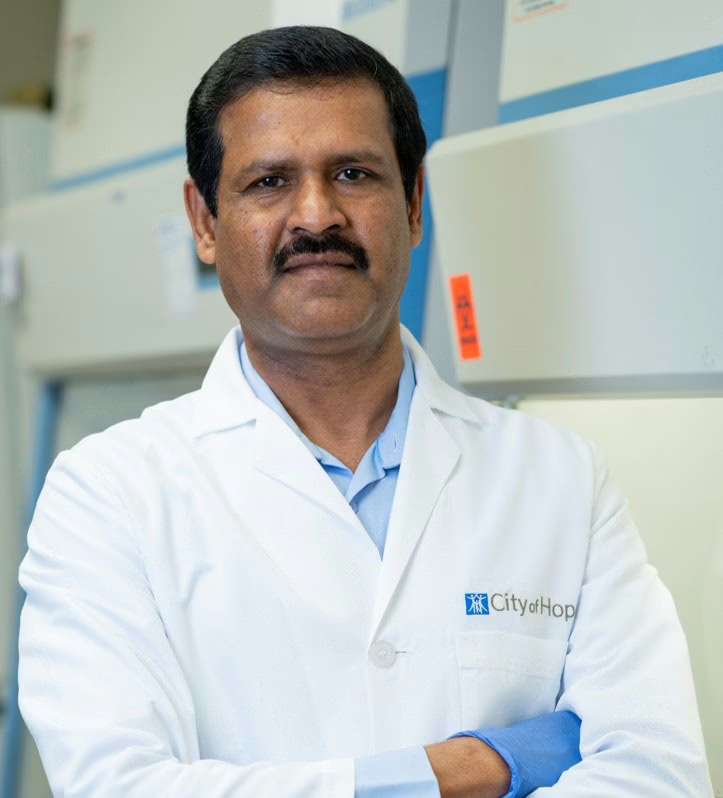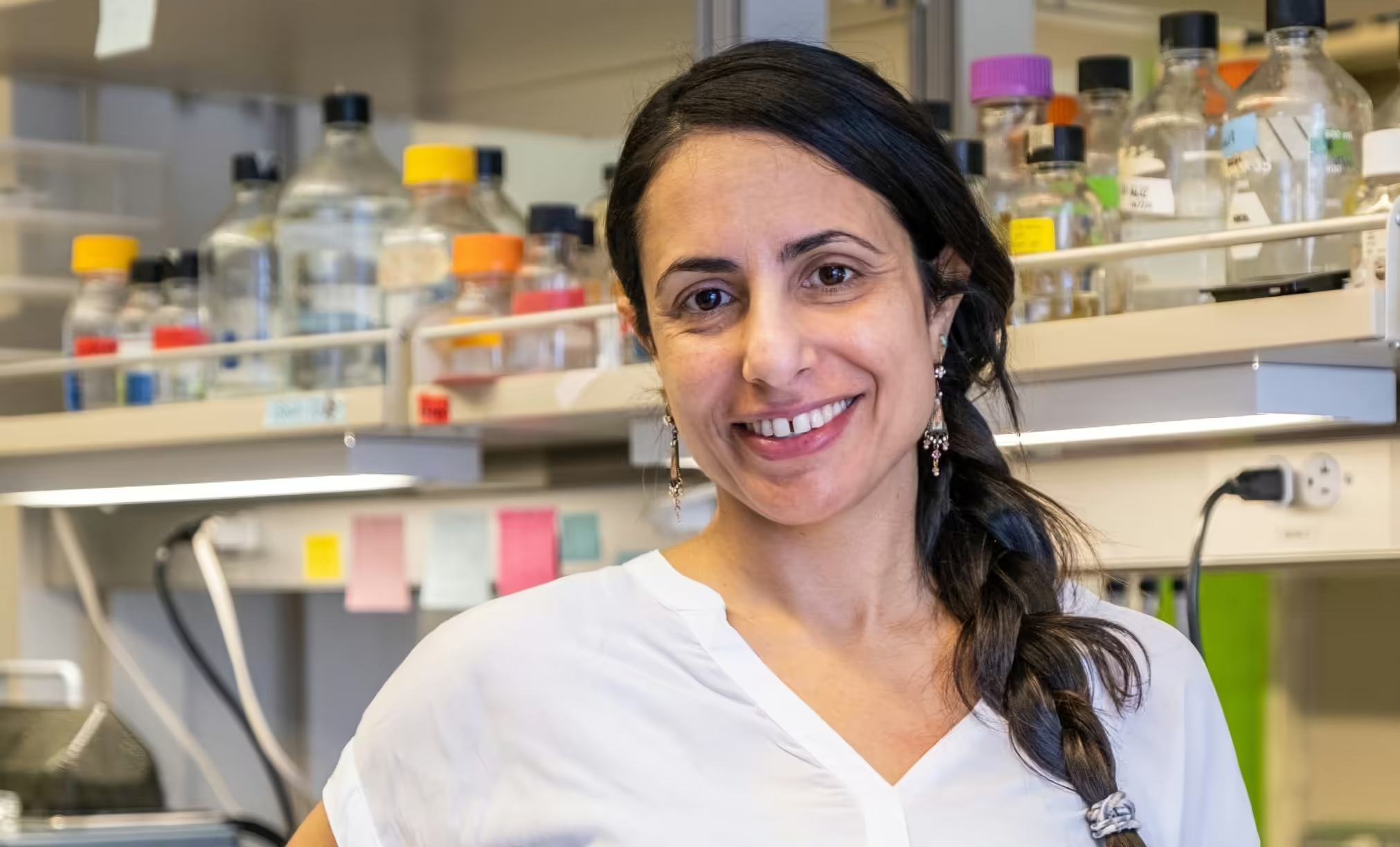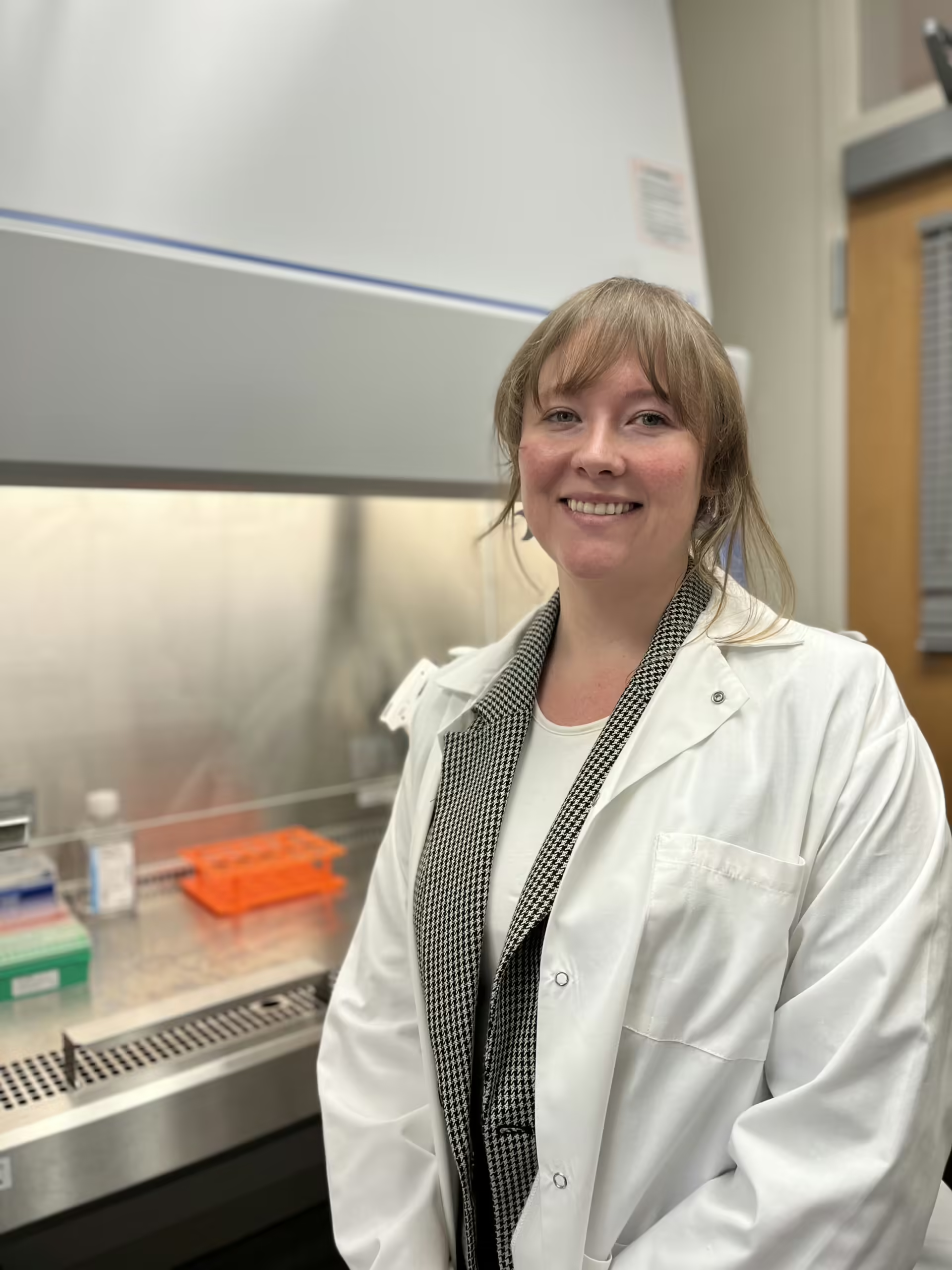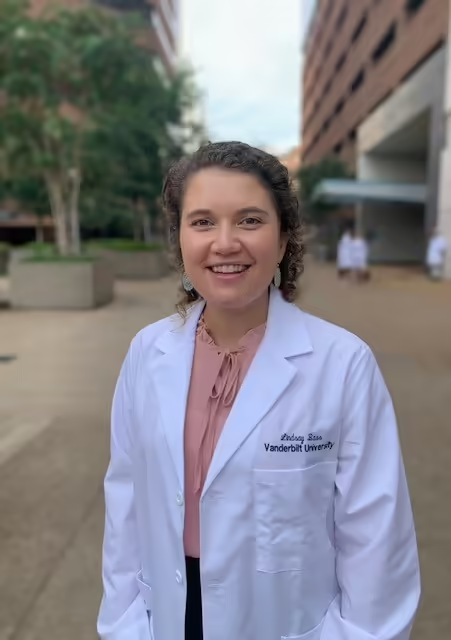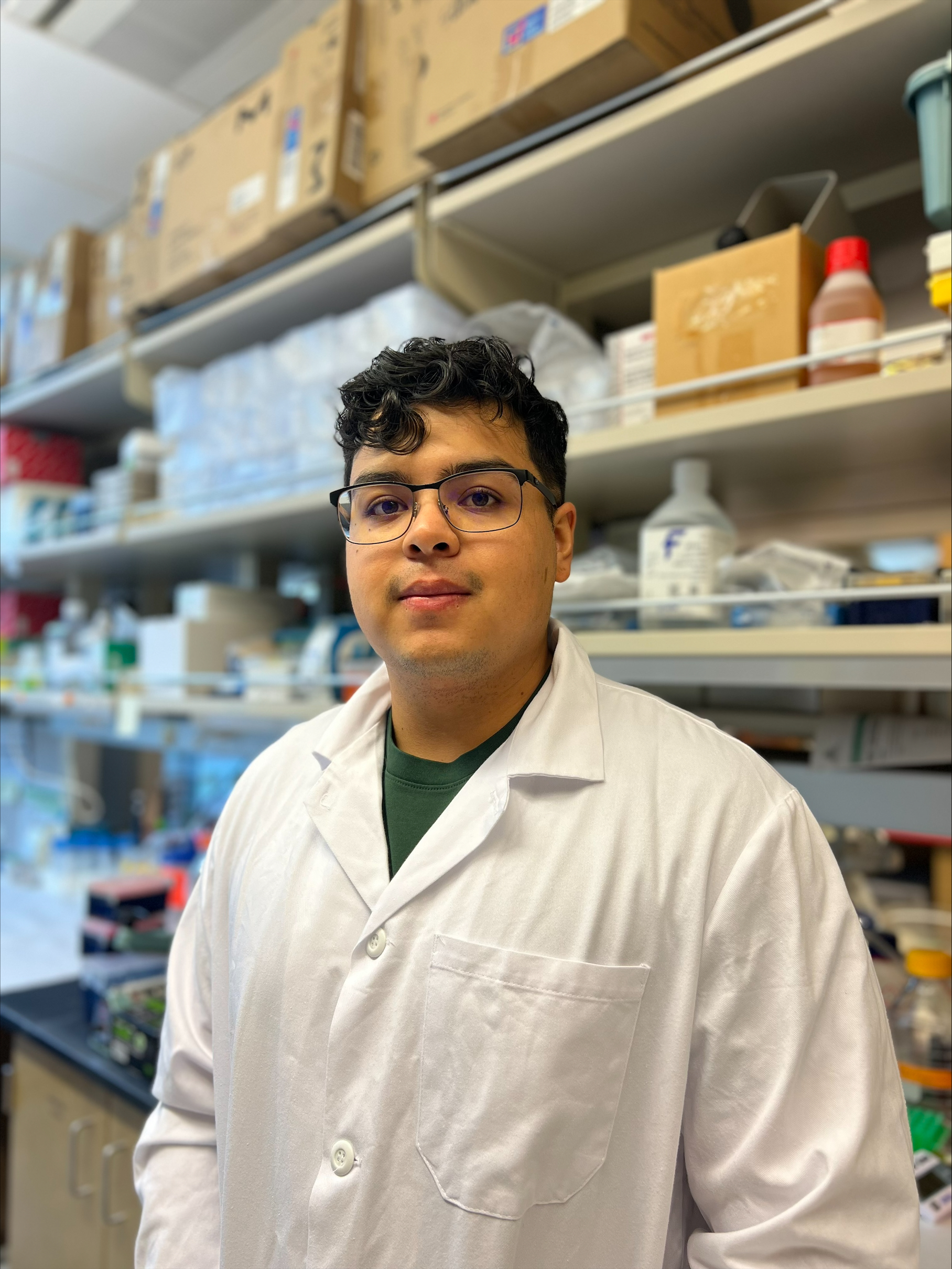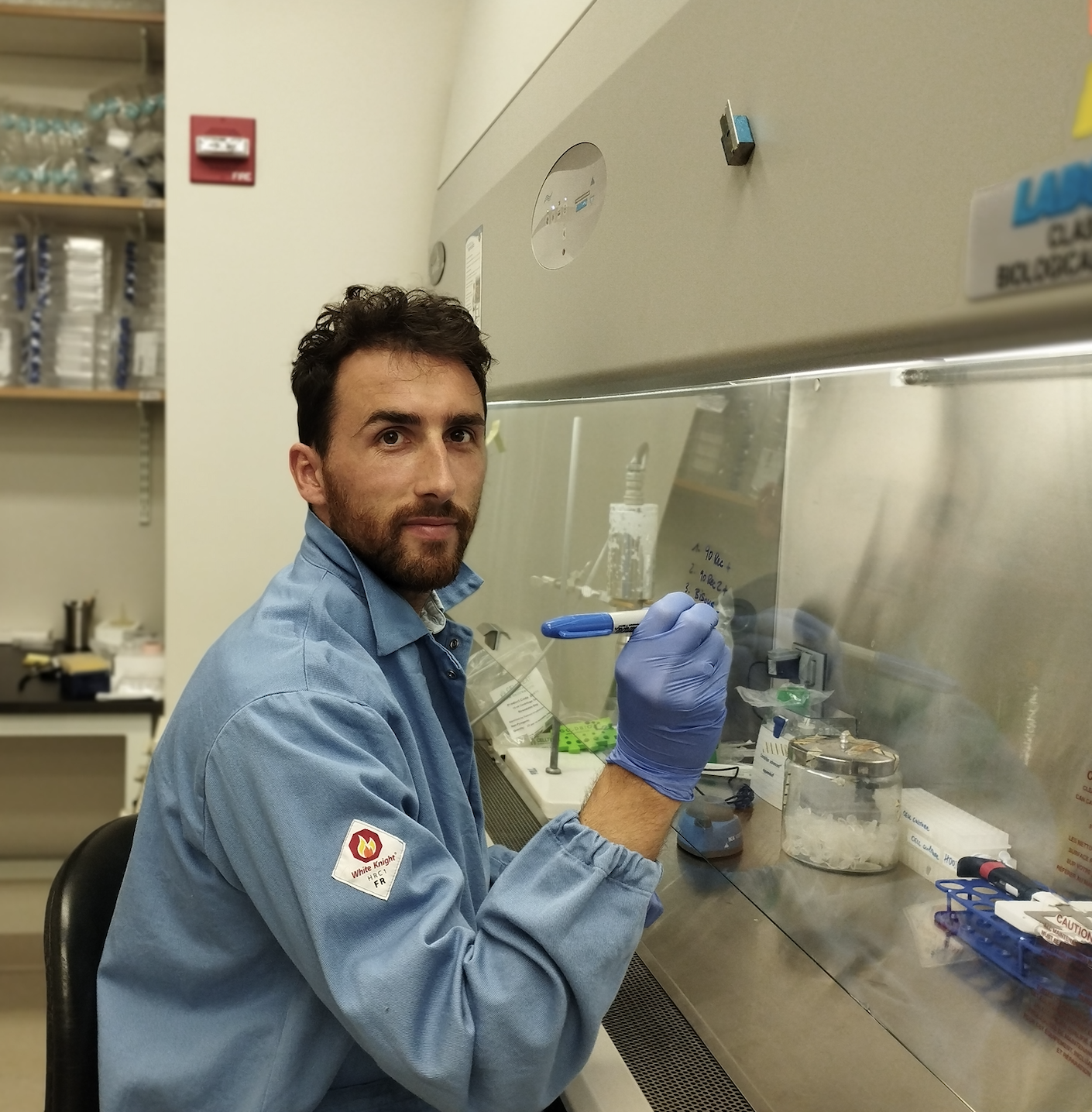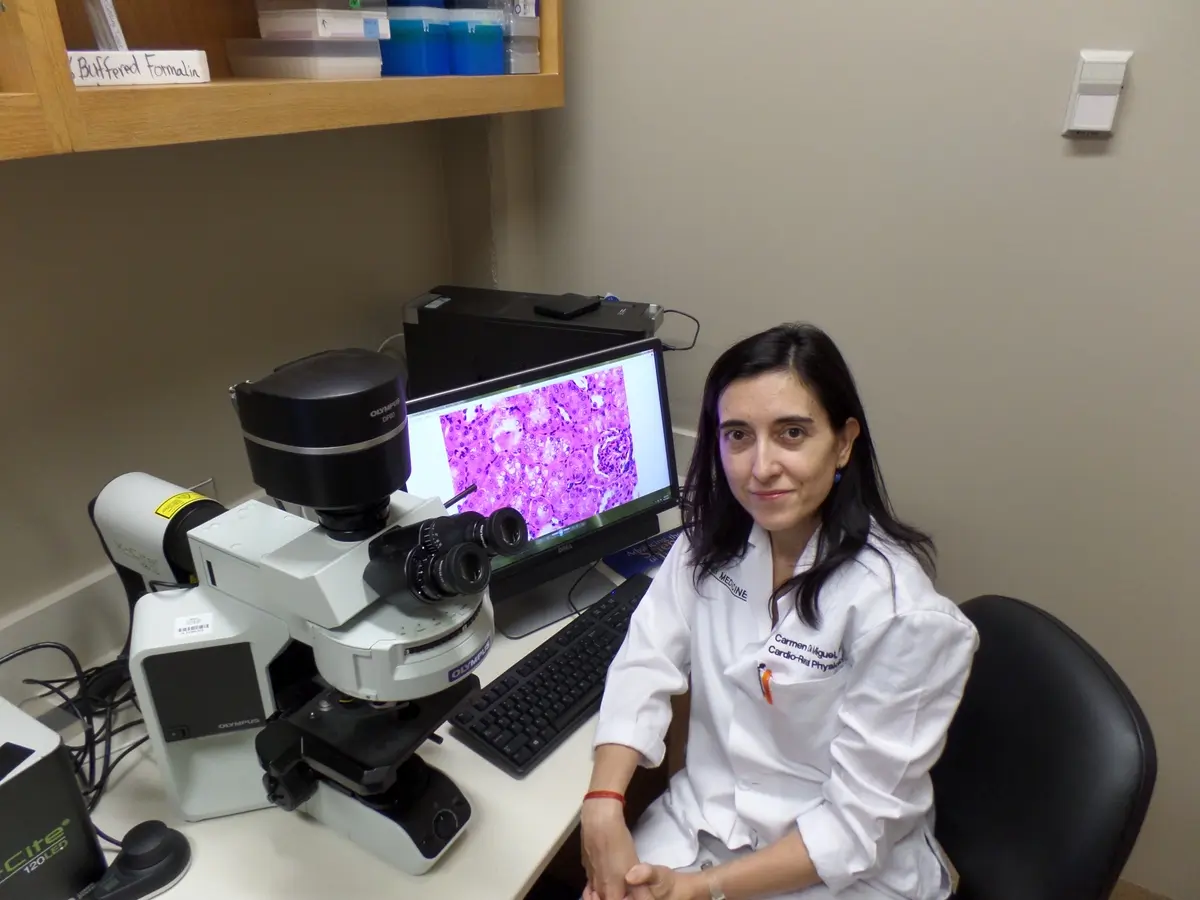Final Update
The second half of the project period focused on crucial method development and optimization, establishing a reliable protocol for processing low-input samples.
3.1. Initial DNA Isolation: While we successfully isolated DNA from both pre-sort and IgA-sorted samples, a significant proportion of the samples (177 out of 432 total) yielded less than 10 ng of DNA or even just a few picograms. This low DNA concentration posed a challenge for library preparation, as the Qiagen FX kit requires a minimum input of 50 pg.
3.2. Library preparation: DNA libraries were prepared using the QIAseq FX DNA Library Kit (QIAGEN)i,ii, following the manufacturer’s protocol optimized for an input of 100 ng of genomic DNA.
a) Fragmentation and End-Repair
- Genomic DNA (few pg-100 ng) from both pre-sort and IgA-sorted samples was used as input for the library preparation.
- The DNA was fragmented and end-repaired using the integrated enzymatic reaction provided in the QIAseq FX DNA Library Kit. The reaction mix included the FX Buffer and FX Enhancer for precise fragmentation control, ensuring uniform library size distribution (~300–500 bp).
- The reaction was incubated under the following thermal conditions: 4°C for 1 minute, 32°C for 25 minutes, and 65°C for 30 minutes to complete fragmentation and end-repair.
b) Adapter Ligation
- After fragmentation, 5 μL of QIAseq Unique Dual-Index (UDI) Y-adapter mix was added to the reaction. Adapter ligation was carried out using the Ligase Master Mix at 20°C for 15 minutes.
- Excess adapters and reaction byproducts were removed through a cleanup step using Qiagen beads (Beckman Coulter) at a 1.8x bead-to-sample ratio.
c) Library Amplification
- Adapter-ligated DNA was amplified using the high-fidelity HiFi PCR Master Mix included in the kit.
- Amplification was carried out in a total reaction volume of 50 μL, with the following cycling conditions: initial denaturation at 95°C for 2 minutes, followed by 12 cycles of denaturation at 98°C for 20 seconds, annealing at60°C for 30 seconds, and extension at 72°C for 30 seconds, with a final extension at 72°C for 1 minute.
- The amplified libraries were purified using Qiagen beads (1.8x bead-to-sample ratio) to remove PCR artifacts.
d) Library Quantification and Quality Assessment
• The quality and quantity of the amplified libraries were assessed using an Agilent Bioanalyzer High Sensitivity DNA chip and Qubit dsDNA HS Assay Kit or Picrogreen reagent kit (Thermo Fisher Scientific) to confirm the expected size distribution and yield.
4.0 Technical Challenges and Solutions:
Our recent work has focused on overcoming significant technical challenges in the molecular characterization of IgA- sorted samples. After initial DNA isolation from both pre-sort and IgA-sorted samples, we encountered a significant hurdle when DNA concentrations from IgA-sorted samples fell below the Qubit detection threshold. Our first attempt at library preparation using the Qiagen FX kit proved unsuccessful for these low-DNA samples, prompting us to explore alternative approaches.
4.1 Library Preparation Optimization:
Our initial optimization efforts with low-yield samples did not produce satisfactory TapeStation results for more than 50% of the low-yield DNA samples, indicating the need for further protocol refinement to address this limitation.
4.2 Repli-g Protocol Optimization:
To optimize the process, we utilized the Repli-g reaction, a whole genome amplification (WGA) technique employing Phi29 DNA polymerase for highly efficient and accurate DNA amplification. This method is particularly suited for low-input or degraded DNA samplesiii,iv. The reaction operates under isothermal conditions at 30°C, where Phi29 DNA polymerase, with its robust strand displacement activity and high fidelity, replicates DNA with minimal errors. In this project, we used the REPLI-g amplification kit for low-input DNA samples and systematically tested reaction durations of 4, 8, and 16 hours. Our optimization revealed that the 16-hour amplification protocol yielded the highest DNA output, amplifying DNA from picogram levels to approximately 800 ng per sample (Figure 1). This approach enabled us to establish a standardized workflow, integrating DNA isolation, REPLI-g amplification, and subsequent library preparation for sequencing.
5. Final Methodology: Based on optimization results, we established a standardized protocol:
- a) DNA isolation from pre-sort and IgA-sorted samples
- b) REPLI-g amplification with 16 h protocol for low-input samples that includes samples presort from Age 1 andall IgA+ samples.
- c) Subsequent library preparation for sequencing
The optimized process was successfully applied to all of our samples, yielding high-quality libraries that were verified using the Agilent Bioanalyzer High Sensitivity DNA chip. Figure 2 presents the results for 14 samples, with or without Repli-g amplification, demonstrating sufficient DNA yields, the desired fragmentation size, and the absence of adapter dimers or ligation artifacts following library preparation.
5.1 Normalization and Pooling
Libraries were normalized using the QIAseq Library Normalizer Kit to ensure equal representation in the sequencing pool. This normalization step involved binding the libraries to Normalizer Reagent beads, washing with Normalizer Wash Buffer, and eluting in Normalizer Elution Buffer.
Equal volumes of normalized libraries were pooled to create the final library pool at a concentration of ~4 nmol/L, suitable for downstream sequencing.
6. Conclusion:
The technical advancements achieved during this reporting period represent a crucial milestone in our project. We have successfully developed and optimized a protocol for processing low-input DNA samples from IgA-sorted microbial populations, overcoming a significant technical barrier in our research. The establishment of this methodology ensures reliable and reproducible processing of our complete sample set, enabling comprehensive characterization of IgA-targeted microbes in T1D progression.
7. Future Plans:
Currently, we have been able to generate libraries for all the samples successfully. Moving forward, we will apply shotgun sequencing using Novaseq sequencer and perform bioinformatic analysis. We plan to conduct detailed comparative analyses of microbial profiles between pre-sort and IgA-sorted populations, with a particular focus on identifying specific microbial signatures associated with T1D progression. Additionally, we aim to integrate these findings with our previous age-correlation data to develop a more comprehensive understanding of the temporal dynamics of IgA-targeted microbes in T1D development.
6 Month Update
Our efforts have yielded promising results in optimizing conditions for the enrichment of IgA+ populations. All the samples have already been sorted and stored at -20°C for further steps. This phase of the project underscores our commitment to methodological refinement and precision in experimental design. For the next six months, I plan to standardize the library preparation process by utilizing different kits to achieve better and more uniform results. Once the standardization is complete, all samples will be used for library preparation for shotgun sequencing. This will include IgA-targeted, non-targeted, and pre-sorted microbes from the controls and T1D samples by August 2024. The bioinformatics analysis will be completed by September 2024. Based on our data, we will select and evaluate species that are more IgA+ targeted in the population in T1D progressors and controls. This will help us decipher the intricate interplay between IgA+ gut commensals and the onset of T1D. This plan not only aims to advance our understanding of IgA+ populations but also sets the stage for potential breakthroughs in understanding the microbial factors influencing T1D progression. We extend our heartfelt gratitude to the Diabetes Research Connection for their unwavering support throughout this project.
Project Description
Type 1 diabetes (T1D) is a condition where the immune system attacks and destroys insulin-producing beta cells, leading to a deficiency in insulin production and elevated blood sugar levels. Genetics alone cannot explain the increased incidence of diabetes worldwide, indicating the role of environmental factors. These factors include viral infections, dietary components, and gut microbiome that are potentially playing a role in disease progression in genetically susceptible individuals.
In this project, I will determine the role of the immune interaction of gut microbes in T1D, focusing on immunoglobulin A (IgA). IgA is a crucial antibody in the immune system that defends our body against pathogens. It is primarily found in mucosal areas such as the gastrointestinal, respiratory, and urogenital tracts, saliva, tears, and breast milk. IgA works by binding to and neutralizing harmful pathogens, protecting the body from infections. Moreover, IgA also shapes the gut microbiome composition by coating beneficial bacteria and preventing them from being attacked by the host immune system. Alterations in IgA have been shown to increase the risk of several autoimmune diseases; however, there is limited data about IgA response in the gut microbiome of T1D patients.
Research showed that IgA levels are higher in T1D patients. However, we don’t know precisely how IgA and the bacteria interact and contribute to the disease. Therefore, the goal of my project is to determine the IgA-coated bacteria in T1D and study their role in disease development. In this study, we obtained stool samples from children at ages 1, 2.5, and 5. We will compare their gut microbiome composition and the targets of the IgA, comparing healthy individuals to children who developed T1D later in life (T1D progressors).
Additionally, we will use a mouse model of T1D to study the role of IgA-coated bacteria on disease onset. The hypothesis is that IgA-coated bacteria play a crucial role in T1D pathophysiology. If we determine a causal link between these gut microbes and T1D onset, it will guide us to develop new therapeutics that specifically target these bacteria to prevent T1D onset in the future. Additionally, beneficial bacterial species can be used for probiotics for the prevention of T1D. I am very excited about this project, and I remain deeply grateful to the DRC and the donors for the support extended to us through this prestigious award and recognition.


